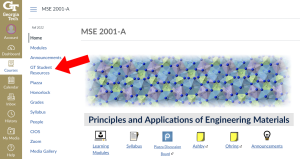Questions have always been at the heart of learning. From the Socratic method to modern pedagogical practices, questioning plays a crucial role in the education process. The ability to ask and answer questions is essential for critical thinking, problem-solving, and deepening understanding. As such, questioning should be considered a foundational aspect of effective pedagogy.
When teachers ask questions, they are not simply seeking to test students’ knowledge or quiz them on facts. Instead, questioning is a tool for engaging students, encouraging them to think critically, and stimulating their curiosity. By asking probing questions, teachers can guide students to explore new ideas, connect concepts, and make meaningful connections.
Furthermore, questioning helps to promote active learning. When students are challenged to answer questions, they must actively engage with the material, rather than passively receiving information. This active involvement helps students to remember and apply what they have learned, leading to deeper levels of understanding and retention.
Questioning also fosters a collaborative learning environment. By asking questions that encourage discussion and debate, teachers can create opportunities for students to share their ideas, listen to others’ perspectives, and collaborate on solving problems. This collaborative approach to questioning not only strengthens students’ communication skills but also helps them to develop empathy, tolerance, and respect for diverse viewpoints.
In addition, questioning can be a powerful tool for assessing student learning. By asking a variety of questions – including open-ended, probing, and reflective questions – teachers can gain insight into students’ understanding, misconceptions, and needs. This information can then be used to tailor instruction, provide feedback, and support students in their learning journey.
Ultimately, questioning should be seen as a dynamic and ongoing process in education. Teachers should continuously ask questions, adapt their questioning strategies based on students’ responses, and create opportunities for students to ask questions of their own. By placing questioning at the center of pedagogy, educators can inspire curiosity, promote critical thinking, and empower students to become active and engaged learners.
In conclusion, questioning is a powerful foundation for pedagogy. By using questioning as a tool for engagement, active learning, collaboration, assessment, and ongoing growth, teachers can create a rich and meaningful learning experience for students. As such, educators should embrace questioning as a fundamental aspect of their practice, recognizing its potential to inspire and enrich the educational process.



